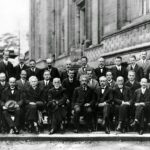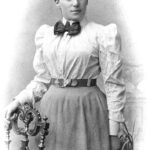Here are seven German female inventors whose innovations, both large and small, have improved our world in various ways.
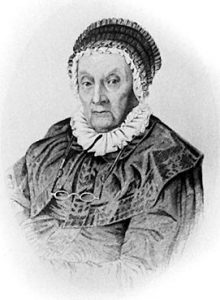 Caroline Lucretia Herschel
Caroline Lucretia Herschel
Caroline Lucretia Herschel (1750-1848) was the first woman to receive full recognition in the world of astronomy. Between 1786 and 1797, she discovered eight comets and 14 nebulae. She received many rewards, including the golden medal of the British Royal Astronomic Society in 1828. The asteroid 281 Lucretia was named after her, as was C. Herschel crater in the Sinus Iridium on the Moon.
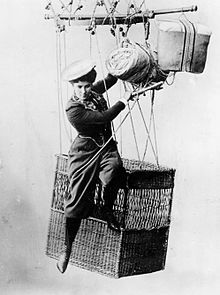 Katharina Paulus
Katharina Paulus
Germany’s first professional air pilot, Katharina Paulus (1868-1935) developed the so-called “parachute packet” in 1913. She folded the parachute and stowed it in a bag, creating the first modern parachute. It saved many lives during World War I, earning her a medal for help during the war. Paulus also invented the intentional breakaway, a system that has one small parachute open to pull out the main one.
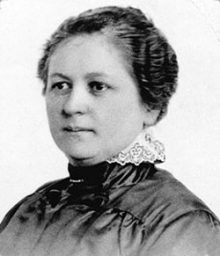 Melitta Bentz
Melitta Bentz
Apparently sick and tired of dealing with coffee grounds in her cups, Melitta Bentz (1873-1950) developed the first coffee filter in 1908. She perforated the bottom of a brass pot in a sieve-like fashion and covered the bottom with a piece of blotting paper from her son’s notebook. Bentz registered her invention with the Imperial Patent Office. The same year, she founded her own company that has since grown into a billion-euro multinational conglomerate. It is still family-owned.
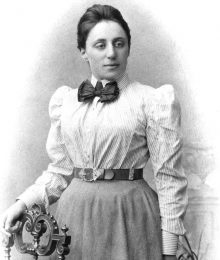 Amalie Emmy Noether
Amalie Emmy Noether
Amalie Emmy Noether (1882-1935) is one of the founders of modern algebra. Albert Einstein called Emmy Noether “the most significant creative mathematical genius thus far produced since the higher education of women began.” Her theorem (Noether’s theorem), which deals with symmetry in nature and the universal laws of conservation, is considered by some to be as important as Einstein’s theory of relativity. It became a basic pillar of the mathematical foundations of physics. As a Jew, she was forced to flee Germany after the Nazis came to power in 1933 and emigrated to the US, where she taught at Bryn Mawr until her death two years later.
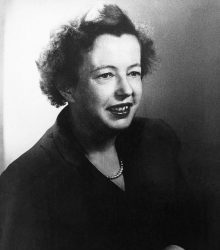 Maria Göppert-Mayer
Maria Göppert-Mayer
In 1949, Maria Göppert-Mayer (1906-1972) developed a model to explain the so-called magic numbers, certain amounts of nucleons in the nucleus of an atom that cause an atom to be extremely stable. In 1963, she shared the Nobel Prize for Physics for her model of the nuclear shell structure with J. Hans D. Jensen and Eugene Paul Wigner.
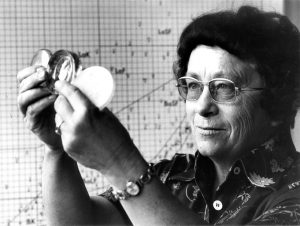 Marga Faulstich
Marga Faulstich
Working at Schott glass company for 44 years, Marga Faulstich (1915-1998) developed over 300 kinds of eyeglass lenses. In 1973, she received the IR100 award from the American Industrial Research Council for the 100 most significant new technical products for her SF64 lightweight lens. It made it possible to create much lighter glasses that were also aesthetically more pleasing. She was the first female executive at Schott in Mainz. About 40 patents are still registered in her name.
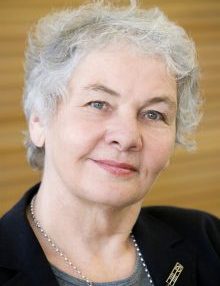
Christiane Nüsslein-Volhard
Christiane Nüsslein-Volhard (b. 1942) is a German developmental biologist, an expert in the fields of genetics and developmental biology. She became the director of the Max Planck Institute for Developmental Biology in Tübingen in 1985. In 1986, she received the Gottfried Wilhelm Leibniz Prize of the Deutsche Forschungsgemeinschaft, which is the highest honor awarded in German research. In 1995, she shared the Nobel Prize for Medicine with Eric Wieschaus and Edward B. Lewis, for “their discoveries concerning the genetic control of early embryonic development.”
Related articles:
Famous German Scientists Who Changed the World (Beyond Einstein!)
German Power Women that Have Changed the World
German Women and 3 K’s
Women in Nazi Germany
Women In German Society
Women in Post-War Germany

